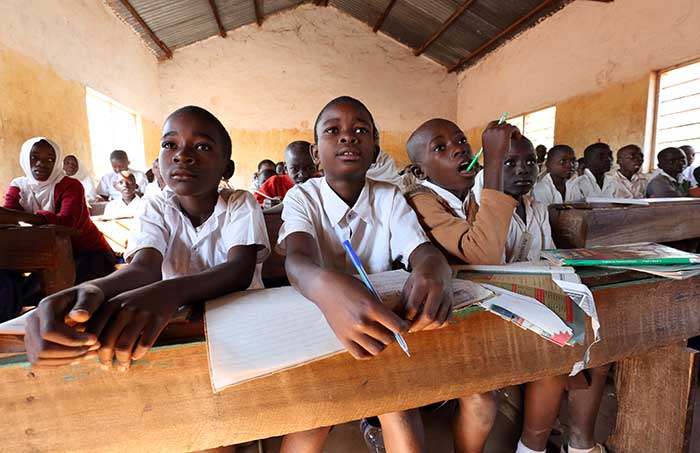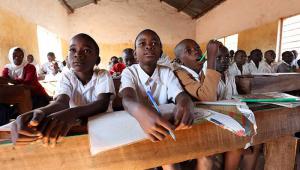web_schoolafrica_shutterstock_315777626.jpg

Children in school
In October Priti Patel, the UK’s secretary of state for international development, said the £4bn that Britain currently channels through international institutions and funds could be cut unless they can evidence value for money.
The UK’s Department for International Development is currently preparing a long-delayed review into the UK’s aid work through multilateral channels.
But speaking to British MPs on the International Development Select Committee yesterday, Alice Albright, chief executive of the Global Partnership for Education, stressed that a multilateral approach, working alongside countries’ own initiatives, is critical.
“You can pursue development initiatives in a bilateral way and that will enable you to pursue interests that are of a strategic nature to you and that’s fantastic,” she explained.
“But there are also development initiatives, and I would argue that education is one of these, where the world needs a galvanised approach.”
According to figures from UNESCO, there are an estimated 263 million children and young people out of school worldwide.
The conflict in Syria, dragging on for almost six years, has removed so many children from classrooms that it sparked fears of a “lost generation”. This has pushed education, especially in emergencies, up the global agenda.
Albright said that because of this critical situation, as well as education’s importance to the achievement of the other 16 Sustainable Development Goals, the issue has an “urgency” that demands a multilateral approach, particularly at the G7.
“When the G7 decides that a problem is of such urgency they must act together, that problem tends to be solved,” she noted.
She also highlighted the success of international health initiatives, such as the Global Fund to fight AIDS, TB and Malaria, which collects funding from governments around the world to end epidemics in those diseases.
In September, the UK pledged over £1bn to the Global Fund. However in October, Patel once again sent tremors through the aid community with the suggestion that such multilateral funding could be cut if it doesn’t provide value for money – the latest in a string of comments that have sparked fears about the future direction of DFID and UK aid.
A new fund, similar to the Global Fund, was set up at the start of the year to improve education in emergency situations. The Education Cannot Wait fund has been championed by Patel’s predecessor, Justine Greening, and by DFID as a whole, which is its largest contributor. Patel now sits on the ECW’s steering committee.
Such multilateral approaches will remain key, Albright said, adding that influential countries like the UK should push for a global response in forums like the G7 and urge developing country governments to devote more domestic resources to schooling.
But donors, including the UK, should give more too, she continued. Also speaking to MPs later on, experts from Save the Children, the Overseas Development Institute and UNESCO agreed – especially in crisis situations.
In emergencies, less than 2% of aid funds go towards ensuring education is not interrupted, leaving the sector massively underfunded. Even ECW has yet to meet its relatively small ($150m in its first year) funding target.













